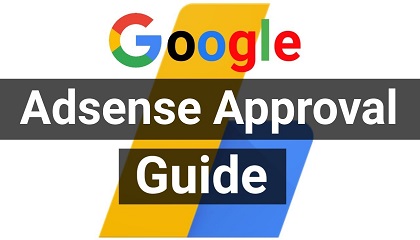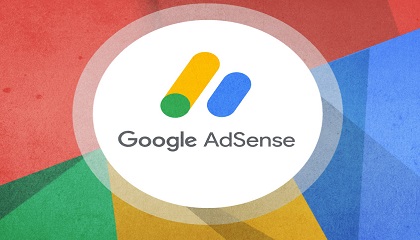AdSense Program policies Protect Adsense Account follow the Tips
Google AdSense is a popular advertising platform and is a great way to earn money online. Most bloggers prefer Google AdSense for monetizing their websites. To have your AdSense account approved is a great deal in recent times but one must strictly adhere to AdSense program policies. If you fail to comply with these policies, your account might get banned. The first point in AdSense program policies clearly states that Publishers may not click their own ads or use any means to inflate impressions and/or clicks artificially, including manual methods.
8 Ways to Prevent Your AdSense Account From Getting Banned
1. Don’t Click Your Own Ads
No matter how desperate you are, do not ever click on your own ads. Google is smart enough to determine that the clicks have originated from the same IP address. Even if you mask your IP address using a VPN software Google will still track your account.
2. Avoid Begging For Clicks
It is unethical for you to beg for clicks on your ads. This means you must never ask your friends and family members or scam people into clicking your ads. Google keeps track of your AdSense account’s ad clicks from all over the internet.
Although Google permits you to use sponsored links for your ads, it does not allow you to use button or link text such as “Click Here”. This makes it seem like you are desperate for ad clicks.
If you’re going to host contests, make sure that they have nothing to do with ad clicking. Also, do not attach ads to your emails or social media posts when you send them.
3. Don’t Change the AdSense Code
Google does permit users to make certain changes to their ads such as size and color. For those changes, AdSense generates a new javascript code, which you can then paste to your HTML.
However, Google’s AdSense program policies strictly forbid users from changing the AdSense code to illegally boosts ad performance or even ruins advertiser conversions. Hence, users must never tweak the code from their web page editing program or by hand.
4. Know a Blog’s Language
The language of the blog could be a factor in getting your AdSense account banned. This is important because some AdSense users publish articles on unsupported language blogs. Placing the AdSense code in a blog in an unsupported language is forbidden by Google AdSense’s program policies. If you translate an unsupported language blog into supported language, this will also be considered a violation to Google.
5. Avoid Invalid Clicks
Just because you are not generating user interest, it doesn’t mean that you use underhanded methods to inflate ad clicks. Some of these methods involve using automated impression and click generating tools, repeated manual clicks and impressions.
Other than that, you shouldn’t also trade clicks with other Google AdSense users or use pay-per-clicking schemes.
6. Don’t Use Forbidden Content
Bloggers cannot place Google AdSense ads on web pages that violates Google’s content guidelines. This includes content that is violent, adult or permits racial discrimination among others, as written on the Content Policies page.
7. No Copyrighted or Gambling Content
AdSense users cannot display their Google ads on pages containing copyrighted content unless they have the necessary legal rights for it. Other than certain countries, Google AdSense restricts users for placing ads on gambling sites or on content related to gambling. This includes content that encourages other users to place bets or play games for money.
8. Paid Traffic
It’s one thing to earn traffic for your Google AdSense-enabled blogs, but using paid traffic is a very unethical, not to mention account-banning practice. Hence, if you want to promote your AdSense blogs fairly, you should do it on Facebook, Reddit and StumbleUpon because then it wouldn’t be considered a violation.
Privacy Policy for Google AdSense
Google AdSense may utilize user data for advertising communication purposes by tracking user interactions with your content and with ads. This is why, in accordance with most countries’ privacy laws, Google requires you to have a privacy policy if you use Google products like Google AdSense and a cookie management solution where applicable (especially if running personalized ads).
As a matter of fact, when you sign up for Google AdSense, you consent to their terms and conditions which states under section “10. Privacy”:
Invalid clicks and impressions
Publishers may not click their own ads or use any means to inflate impressions and/or clicks artificially, including manual methods.
Encouraging clicks or views (non-rewarded inventory)
Except for rewarded inventory, publishers may not ask others to click or view their ads or use deceptive implementation methods to obtain clicks or views. This includes, but is not limited to, offering compensation to users for viewing ads or performing searches, promising to raise money for third parties for such behavior or placing images next to individual ads.
Content policies
Publishers should not place AdSense code on pages with content that violates the Google Publisher Policies. Doing so may result in your account(s) being suspended or terminated.
Publishers may place AdSense code on pages with content in scope of the Google Publisher Restrictions, though this content will likely receive less advertising than other, nonrestricted content.
Abusive experiences
Publishers may not place Google ads on sites that contain abusive experiences. See the abusive experiences page for more information.
Authorized inventory (ads.txt)
If AdSense publishers choose to use ads.txt on their domains, those publishers must ensure that they are included as authorized sellers of that inventory. For more information, see declare who is authorized to sell your inventory with ads.txt.
Traffic sources
Google ads may not be placed on pages receiving traffic from certain sources. For example, publishers may not participate in paid-to-click programs, send unwanted emails or display ads as the result of the action of any software application. Also, publishers using online advertising must ensure that their pages comply with Google’s Landing Page Quality Guidelines.
Ad behavior
Publishers are permitted to make modifications to the AdSense ad code so long as those modifications do not artificially inflate ad performance or harm advertisers. Please see modification of the AdSense ad code for more information.
Ad placement
Publishers are encouraged to experiment with a variety of placements and ad formats. However, AdSense code may not be placed in inappropriate places such as pop-ups, emails or software. Publishers must also adhere to the policies for each product used. Please see our ad placement policies article for more information.
Site behavior
Sites showing Google ads should be easy for users to navigate. Sites may not change user preferences, redirect users to unwanted websites, initiate downloads, include malware or contain pop-ups or pop-unders that interfere with site navigation.
Technical requirements
To help you provide a quality user experience, Google has developed technical specifications for sites displaying Google ads. We only allow sites that comply with these technical specifications.
If you are a rookie Google AdSense user, you must have the patience to attract your audience with your ads. Therefore, follow the steps provided above or your AdSense account will be banned. If there are other steps that I have missed out, do let me know in the comments below.

